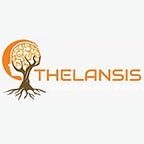Nocturnal Enuresis — Market Outlook, Epidemiology, Competitive Landscape, and Market Forecast Report — 2023 To 2033
Nocturnal enuresis (NE) is a condition where an individual involuntarily loses urine while asleep after the age at which bladder control usually begins. NE can cause distress to both children and their families, and can have an adverse impact on behavior, social life, self-esteem, and emotional well-being. NE is common, especially at school entry age, but will spontaneously resolve in over 50% of children by the time they are 10 years old. The aetiology of NE is multifactorial and involves social, behavioral, genetic, and clinical factors. The most common risk factor is genetic/family history. In twin studies, identical twins showed greater concordance compared with non-identical twins (68% and 36%). If one parent has childhood NE, around 50% of their children are affected, increasing to 75% if both parents are affected ¹. Some genetic loci for NE have been identified. The underlying pathophysiology of NE is understood as a complex combination of reduced nocturnal bladder capacity and nocturnal polyuria with sleep arousal difficulties, resulting in enuresis at different stages of the sleep cycle, not only in deep sleep. Commonly associated comorbidities include constipation, urinary tract infection (UTI), obstructive sleep apnea, and bladder dysfunction. Less common conditions with an observed association with NE include cognitive impairment and/or disordered development, diabetes mellitus, diabetes insipidus, seizures, hyperthyroidism, sickle cell disease, pinworms, obesity, and chronic kidney disease. Desmopressin can be used as first-line treatment if an enuresis alarm is unacceptable or short-term control of symptoms is needed. It can be added to enuresis alarm treatment or used alone. Desmopressin is a long-acting synthetic analogue of the hormone vasopressin with several actions, resulting in increased water reabsorption by the kidney and thus a reduced volume of more concentrated urine.
Thelansis’s “Nocturnal Enuresis Market Outlook, Epidemiology, Competitive Landscape, and Market Forecast Report — 2023 To 2033” covers disease overview, epidemiology, drug utilization, prescription share analysis, competitive landscape, clinical practice, regulatory landscape, patient share, market uptake, market forecast, and key market insights under the potential Nocturnal Enuresis treatment modalities options for eight major markets (USA, Germany, France, Italy, Spain, UK, Japan, and China).
KOLs insights of Nocturnal Enuresis across 8 MM market from the centre of Excellence/ Public/ Private hospitals participated in the study. Insights around current treatment landscape, epidemiology, clinical characteristics, future treatment paradigm, and Unmet needs.
Nocturnal Enuresis Market Forecast Patient Based Forecast Model (MS. Excel Based Automated Dashboard), which Data Inputs with sourcing, Market Event, and Product Event, Country specific Forecast Model, Market uptake and patient share uptake, Attribute Analysis, Analog Analysis, Disease burden, and pricing scenario, Summary, and Insights.
Thelansis Competitive Intelligence (CI) practice has been established based on a deep understanding of the pharma/biotech business environment to provide an optimized support system to all levels of the decision-making process. It enables business leaders in forward-thinking and proactive decision-making. Thelansis supports scientific and commercial teams in seamless CI support by creating an AI/ ML-based technology-driven platform that manages the data flow from primary and secondary sources.
